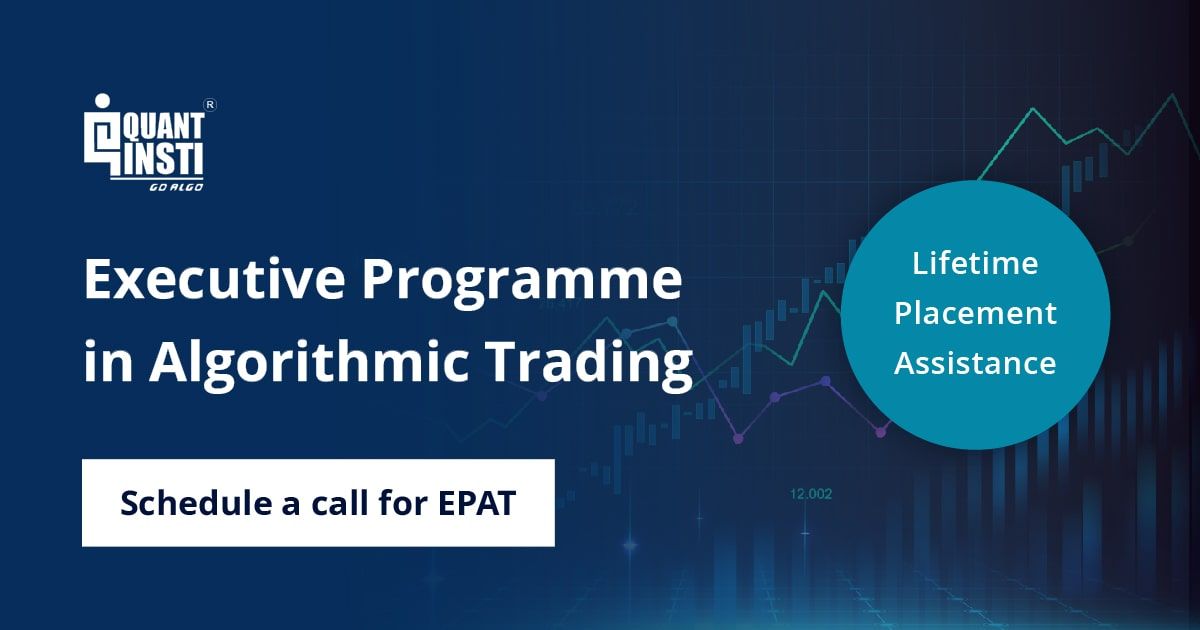For someone with 30+ years of work experience, Mark Rendle still has that enthusiasm for learning new things and continues to learn and grow. We bring to you his story.
Here’s our conversation with Mark:

Hi Mark! Could you tell us about yourself?
Good morning, my name is Mark Rendle. I’m a British / Canadian and am currently living in the US working for a large energy company.
Outside of work, I love spending time with my family and we enjoy travel and mountain sports such as skiing, boarding and biking. I also have a great interest in trading the markets, and really enjoy the intellectual challenge that this complex, everchanging multi variate arena provides.
I primarily use algorithms as they enable a more definitive evaluation of trading strategies and alleviate the mechanical burden of trade management.
Could you tell us about your educational journey Mark?
That’s an interesting one. I’ve taken, at least initially, a somewhat circuitous route. I left school at 16 and signed up with a chemical tanker shipping company to do a 4-year marine engineering apprenticeship, after which I spent another 4 years working on the cruise liners as an engineer.
After this incredible experience, I decided to study (in the UK) for a degree in Mechanical Engineering. After this, I secured a job at an energy company, at which I’m still working today. I also have an MBA, and am now considering a Masters in Quant Finance.
It wasn’t the traditional approach, but in hindsight, it provided an incredible foundation.
25+ years of work experience in Oil & Energy! It would be great to learn about your journey.
I’ve had the good fortune to work all over the world, travel extensively, work with incredible people and be challenged by interesting opportunities. A favourite of mine has been the Arctic, which is an incredibly special place. My contribution has generally focussed on the early phases of a project, where we evaluate the investment potential.
You have been trading yourself. Could you share your experience?
I came to the US in the late 90s, the markets were on an incredible bull run and everybody was talking about the markets and trading their own accounts – so it was difficult not to get caught up in that.
I opened a trading account and invested some money I made from a house sale. My account size grew very quickly and I felt I had a knack for the markets (along with everyone else). Then in March 2000, the markets turned violently and my account size reversed very quickly. I realized I didn’t fully understand the market dynamics, I didn’t have an edge, I couldn’t manage risk, and I had a lot to learn.
Trading is financially dangerous and requires you to be very well prepared. So, in 2003 I opened a Tradestation account and started to code. This allowed me to test ideas, develop strategies and demonstrate that they were robust and viable over the market cycles.
So that was the start, and I’ve been algo trading since then as a hobby.
People are not completely open to the idea of creating their own algorithms. What is your take on that?
I think there are a couple of aspects.
Difficulty: Be under no illusion, trading successfully over the long term is incredibly difficult, that’s the reason why 80% of professional money managers fail to beat the market indices. Think about that – 80% of people who have devoted their education and career to trading the markets professionally, would have been better served if they had just purchased an index fund.
Complexity: To learn how to code, and then deploy that code to automatically trade the markets is complex and requires significant effort to ensure it performs as expected and delivers the anticipated edge. Developing the skills and capacity to do this well is a non-trivial undertaking.
Competition: If we contemplate hedge funds and other investment houses, they attract an incredible pool of gifted, intellectual talent. It’s these individuals that are often taking the other side of our trades – do we really think we can outsmart them?
Computing Power: Given the aforementioned, to be successful takes incredible commitment and dedication. One has to worry though that the rapid expansion in algo trading and computer power will permanently change the market dynamics and eliminate the existence of opportunity, or at least make it more difficult to find.
Time is a finite resource, so these are some of the background concerns / thoughts I’ve contemplated when deciding to invest time in the markets vs something else I enjoy.
That being said, if you do want to trade, even as a discretionary trader, you need an algorithm - a set of rules that explicitly outlines how a position will be managed. If you don’t, then there is no way to demonstrate the existence of an edge.
Furthermore, automating your algorithm will ensure you trade consistently, avoid a breakdown in discipline that sometimes afflicts discretionary traders, and spend your time developing successful strategies rather than manually executing trades.
At what age does learning stop?
Learning should be a lifelong undertaking and there’s no reason it should stop – at any age.
Picking up Python has been interesting, both immensely frustrating and highly rewarding in equal measure. Initially, nothing works, the error codes are meaningless and it’s a black hole consuming your free time (the frustration), then gradually it begins to gel, you’re thinking in Python and executing complex code (the reward).
This to me has been insightful and underpins the need for perseverance and staying focussed on your goal.
What are your thoughts on technology and how would you describe your trading style?
The leveraging of technology is a very interesting facet of trading.
The real-time transfer of data between remote servers to support complex mathematical analysis and order generation is very powerful. And writing the code to make this happen is very rewarding.
My trading approach combines elements from both the fundamental and technical toolbox.
I’ll trade a large portfolio of long and short candidates (to smooth performance) and then trade a number of strategies across the portfolio.
How did you connect with QuantInsti?
By chance really. As mentioned, I use Tradestation, which is a great platform for algorithmic trading, however, it only provides access to US securities, which is a constraint if you’re looking to manage a more international portfolio. As such, I started to look for a way to deploy my Tradestation algorithms via Interactive Brokers, who provide international access.
Initially, I was only looking for a course on Python, but stumbled upon QuantInsti’s EPAT offering and found the curriculum quite compelling. My thought was “If I’m going to compete with the Hedge funds, then I need to know this material well”. So, I signed up in short order.
It is great that QuantInsti has established a community for post EPAT learning and connecting alumni. I’m certainly interested in taking advantage of this resource.
What's next for you in terms of trading?
I’m now finalizing the code to implement my strategies via the Interactive Brokers platform, and also perform some quite sophisticated portfolio analytics, so that’s the first step.
I’ll then revisit the many concepts taught during EPAT and integrate viable features into my current strategies. Thereafter – we’ll see how this journey continues.
Would you like to share something for those who want to get into Algo trading?
As I touched on earlier, if your goal is to solely make money and you’re not wholly captivated by the market, then you’d be better served by buying an index fund (Spiders for example). Save yourself the time, money and frustration and do something more meaningful to you.
If however, you’re passionate about markets, then algorithmic trading has the potential to accelerate your learning, more clearly reveal your edge and refine your execution. For me personally it’s a highly rewarding and lifelong endeavour.
How was your learning experience at EPAT?
The EPAT programme was an incredible learning experience. The curriculum was highly relevant, the lectures and associated material excellent, the support superb and the on-line learning environment highly effective.
The course, whilst not cheap, represents incredible value for money and any trader serious about their development would be well served by the EPAT offering. I’d like to thank QuantInsti and personally acknowledge the excellent work by all involved. Thank you!
Thank you so much for your time, Mark! It has been a privilege speaking to you. We wish you a lot of success, more learning and an excellent journey in your trading career. We are very thankful for your kind words about EPAT and Quantinsti.
EPAT is a comprehensive course covering topics ranging from Statistics & Econometrics to Financial Computing & Technology including Machine Learning and more. Start your quest to upgrade your knowledge of Algorithmic Trading with EPAT. Check it out here.
Disclaimer: In order to assist individuals who are considering pursuing a career in algorithmic and quantitative trading, this case study has been collated based on the personal experiences of a student or alumni from QuantInsti’s EPAT® programme. Case studies are for illustrative purposes only and are not meant to be used for investment purposes. The results achieved post completion of the EPAT® programme may not be uniform for all individuals.

